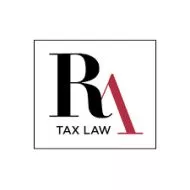Background
The Federal Court of Appeal (FCA) recently issued a pivotal ruling in Glencore Canada Corporation v R, sparking widespread discussion within the tax and industry sectors. This case, originating from a decision in the Tax Court of Canada (2021 TCC 63), centers around the taxation of "break fees" paid by a target company to a potential acquirer in the context of a failed merger or acquisition.
Tax Treatment of Break Fees
Break fees are contractual payments made by a target company to a potential acquirer when a proposed deal fails to materialize. These fees compensate the acquirer for the time, resources, and opportunity costs associated with the failed transaction. In some cases, break fees are structured to incentivize potential acquirers to make competitive bids or discourage target companies from backing out of agreements.
In Canada, the taxation of break fees depends on the specific circumstances of each transaction. Generally, break fees are considered as income and are subject to taxation under the Income Tax Act ("ITA"). The characterization of break fees for tax purposes can vary, with factors such as their purpose, nature, and relationship to the taxpayer's business activities being taken into account. The recent Glencore case highlights the importance of accurately determining the tax treatment of break fees, particularly in the context of M&A (mergers and acquisition) transactions.
The Tax Dispute and Federal Court of Appeal's Ruling
Upon reassessment, Glencore (successor to Falconbridge) was taxed on the break fees as income, leading to an appeal to the Tax Court. The Tax Court upheld the taxation, deeming the break fees as business income under section 9. This decision was based on the interpretation that the break fees were linked to Falconbridge's business operations and its strategy for income generation.
The Federal Court of Appeal (FCA) overturned the Tax Court's decision, emphasizing a different interpretation. The FCA rejected the notion that the break fees constituted capital gains, and instead, the FCA classified the break fees as an "inducement" received in the process of earning income from a business or property under paragraph 12(1)(x) of the ITA.
Break fees are commonly perceived as incentives within commercial contexts, serving to motivate hesitant bidders to engage in transactions. In Glencore, the FCA recognized a comparable scenario, affirming that the break fees were disbursed to encourage Falconbridge to make an offer despite the potential for competing bids. Consequently, the FCA concluded that these break fees fell within the legal definition of inducements.
Implications for M&A Transactions
The FCA's ruling in Glencore has significant implications for M&A transactions involving break fees. It highlights the significance of meticulously documenting the intent behind negotiated break fees, alongside a detailed understanding of the commercial motivations driving such transactions.
Conclusion
In conclusion, Glencore highlights the complexities surrounding the taxation of break fees in M&A transactions. Taxpayers, corporations and industry professionals must closely evaluate the implications of this ruling and ensure compliance with relevant tax laws and regulations in similar scenarios.
The content of this article is intended to provide a general guide to the subject matter. Specialist advice should be sought about your specific circumstances.


